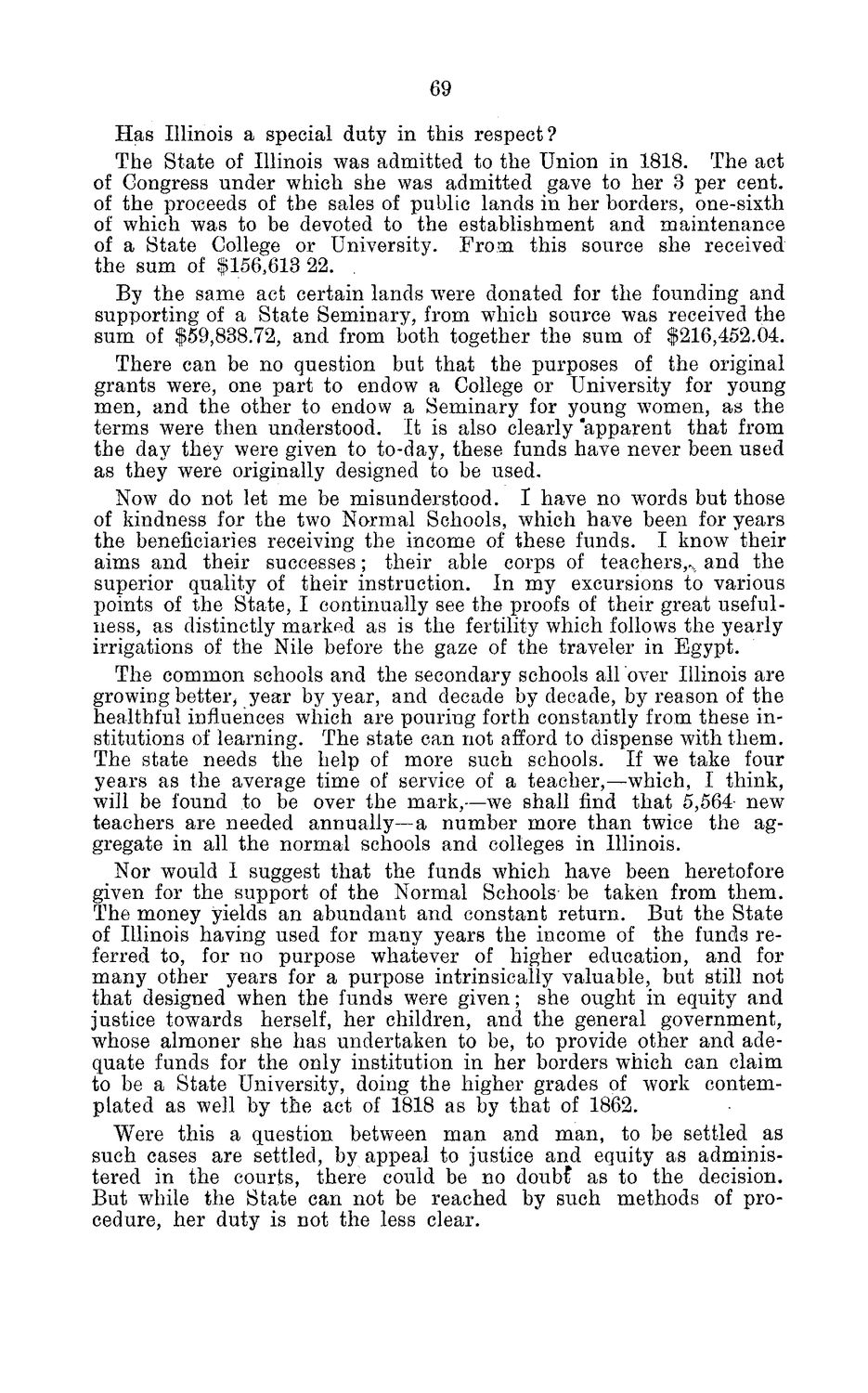| |
| |
Caption: Board of Trustees Minutes - 1884
This is a reduced-resolution page image for fast online browsing.

EXTRACTED TEXT FROM PAGE:
69 Has Illinois a special duty in this respect? The State of Illinois was admitted to the Union in 1818. The act of Congress under which she was admitted gave to her 3 per cent, of the proceeds of the sales of public lands in her borders, one-sixth of which was to be devoted to the establishment and maintenance of a State College or University. From this source she received the sum of $156,613 22. . By the same act certain lands were donated for the founding and supporting of a State Seminary, from which source was received the sum of $59,838.72, and from both together the sum of $216,452.04. There can be no question but that the purposes of the original grants were, one part to endow a College or University for young men, and the other to endow a Seminary for young women, as the terms were then understood. It is also clearly "apparent that from the day they were given to to-day, these funds have never been used as they were originally designed to be used. Now do not let me be misunderstood. I have no words but those of kindness for the two Normal Schools, which have been for years the beneficiaries receiving the income of these funds. I know their aims and their successes; their able corps of teachers,% and the superior quality of their instruction. In my excursions to various points of the State, I continually see the proofs of their great usefulness, as distinctly marked as is the fertility which follows the yearly irrigations of the Nile before the gaze of the traveler in Egypt. The common schools and the secondary schools all over Illinois are growing better, year by year, and decade by decade, by reason of the healthful influences which are pouring forth constantly from these institutions of learning. The state can not afford to dispense with them. The state needs the help of more such schools. If we take four years as the average time of service of a teacher,—which, I think, will be found to be over the mark,—we shall find that 5,564 new teachers are needed annually—a number more than twice the aggregate in all the normal schools and colleges in Illinois. Nor would I suggest that the funds which have been heretofore given for the support of the Normal Schools be taken from them. The money yields an abundant and constant return. But the State of Illinois having used for many years the income of the funds referred to, for no purpose whatever of higher education, and for many other years for a purpose intrinsically valuable, but still not that designed when the funds were given; she ought in equity and justice towards herself, her children, and the general government, whose almoner she has undertaken to be, to provide other and adequate funds for the only institution in her borders which can claim to be a State University, doing the higher grades of work contemplated as well by the act of 1818 as by that of 1862. Were this a question between man and man, to be settled as such cases are settled, by appeal to justice and equity as administered in the courts, there could be no doubf as to the decision. But while the State can not be reached by such methods of procedure, her duty is not the less clear.
| |